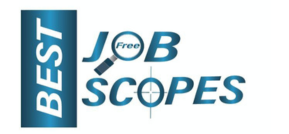Under the overall guidance of the Secretary General and the direct supervision of the Director, OAS and within delegated authority, the IT Manager will be responsible for the following duties: CIT Operations Management • Manage the CIT Unit, manage team members’ performance, provide couching and guidance to the team members. • Formulate and update overall CIT strategies, plan, implement, manage, monitor, and improve the overall IT efficiency of the Secretariat and the cyber security measures for the protection and efficient operation of the Secretariat’s data, systems and networks. • Develop, and implement CIT policies and standard operating procedures (SOP) as needed. • Keeping abreast of latest technological developments in the field and provide recommendations to Director/Senir Management Group on introducing technological solution to improve efficiency and productivity of the Organization. • Negotiate and manage CIT service contracts; manage hardware, software and application license subscriptions across the organization. • Manage system maintenance, update, upgrade, and enhancement in close collaboration with the service provider and developers using industrial best practices, and chain management principles to ensure continuous service provision, including ERP system. • Plan the CIT budget and expenditures, select and purchasing new and replacement hardware and software, and maintain inventory records of all CIT assets. • Monitor day-to-day technical support, and plan of all aspects of the IT network infrastructure (LAN/WAN/Wireless network) including VMware vSphere-based server environment. • Provide and advocate information security awareness to the Secretariat staff and sensitize on other CIT projects and technical initiatives of the Secretariat. • Provide CIT support to the annual session of the Authority and other on-site and off-site meetings, workshops and events. • Establish and maintain good working relationship with relevant partners and stakeholders. CIT Governance • Identify and propose technological solutions to address, improve, or enhance organizational needs in the field of information technology. • Act as Ex Officio to Communication and Information Technology Steering Committee (CITSC), present current CIT portfolio trend analysis, propose short/long term CIT strategic roadmaps, provide technical advice & recommendations on CIT policies, standards, and guidelines, propose CIT projects including budgetary projection. Cyber Security, IT Security & Information Security • Develop cyber security and risk mitigation framework in line with best practices and provide necessary awareness training for the Secretariat staff as well as any relevant stakeholders to minimize or eliminate cyber security breach and potential damage. • Review, update and enforce CIT infrastructure and information security policies within the defined cyber security and risk mitigation framework. • Proactively develop risk control and recovery measures from potential impact to IT infrastructure and digital information imposed by internal and external security threats. • Test and identify network and system vulnerabilities as well as aptitude to demonstrate great awareness of cybersecurity trends, including relevant legislations and regulations, and hacking techniques as well as best practices on responding to and mitigating any damage caused by cyberattacks. Disaster Recovery and Business Continuity (DR&BC) • Assess CIT operational risk, analyse impact, develop mitigation measures for defined disaster scenarios. • Develop and update Business Continuity Plan (BCP) in all relevant aspects involving the provisioning of CIT services. • Plan, design, establish, and maintain Disaster Recovery (DR) site. • Conduct awareness workshops and trainings, preparedness campaign to the Secretariat staff, CIT team members, and all involving stakeholders. ERP System • Liaise with other offices within the Secretariat, consolidate business process workflows to support for further development of the Secretariat’s ERP system. • Advise the external service provider (and if any) and 3rd party developers, act as technical focal technical advisor to ensure the Secretariat’s operational needs within the scope are addressed and implemented as expected. • Develop, and maintain ERP operational framework including operational policies, standard operating procedures (SOP), clear boundaries of responsibilities and rights between the stakeholders. • Manage 1st-level user and technical support in day-to-day operations of the Secretariat’s ERP System. Technical Coordination and Advisory • Closely liaise with the Secretariat’s database manager and Knowledge Management Officer and provide necessary IT support and ensuring that adequate cybersecurity measures are in place. • Communicate with heads of substantive offices to provide CIT support to the development and implementation of the business plan. • Performs other duties as required by the Secretary General.
 Best Job Scopes وظائف شاغرة وفرص عمل في لبنان والشرق الأوسط والعالم
Best Job Scopes وظائف شاغرة وفرص عمل في لبنان والشرق الأوسط والعالم

